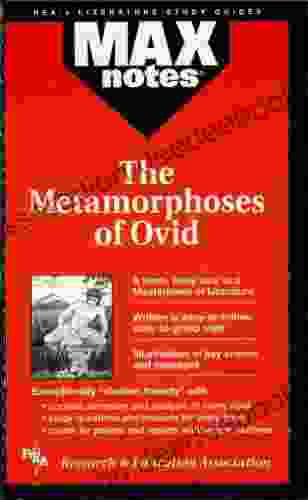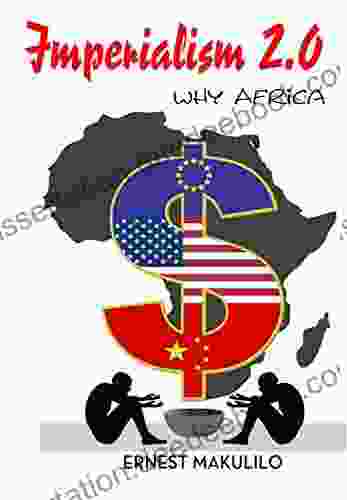Imperialism in Africa: The Scramble for Resources and Power

Imperialism, a system of domination by one country over another, has left an enduring legacy on the African continent. The scramble for Africa by European powers in the late 19th century marked a period of intense competition and exploitation, leading to profound and long-lasting consequences for African societies.
4.1 out of 5
| Language | : | English |
| File size | : | 26838 KB |
| Text-to-Speech | : | Enabled |
| Screen Reader | : | Supported |
| Enhanced typesetting | : | Enabled |
| Word Wise | : | Enabled |
| Print length | : | 183 pages |
| Lending | : | Enabled |
This article explores the history of imperialism in Africa, examining its causes, consequences, and legacies. We will delve into the motivations of European powers, the impact of colonialism on African societies, and the complex ways in which imperialism has shaped the continent's political, economic, and social landscapes.
Causes of Imperialism
The causes of imperialism in Africa are complex and varied, but several key factors played a significant role:
- Economic motives: The industrial revolution in Europe led to increased demand for raw materials and new markets. Africa's abundant resources, such as gold, diamonds, rubber, and agricultural products, attracted European powers eager to exploit them.
- Political ambitions: European nations competed for prestige and influence in the international arena. Acquiring colonies in Africa was seen as a way to enhance national power and status.
- Ideological factors: Justifications for imperialism often included notions of racial superiority, the "civilizing mission," and the belief that European powers had a duty to bring "progress" to Africa.
The Scramble for Africa
The scramble for Africa began in earnest in the 1880s, as European powers raced to establish colonies and spheres of influence. The Berlin Conference of 1884-1885, convened by Otto von Bismarck of Germany, formalized the division of Africa among the European powers.
Within a few decades, most of Africa had fallen under European control. Britain, France, Germany, Portugal, and Belgium were among the major colonizers, establishing vast empires that spanned the continent.
Consequences of Imperialism
The consequences of imperialism for Africa were profound and far-reaching:
- Political division: The arbitrary borders drawn by European powers divided African societies, often creating conflicts and tensions that persist to this day.
- Economic exploitation: Colonial powers extracted raw materials and natural resources from Africa, often at the expense of local economies and the environment.
- Social disruption: Imperialism disrupted traditional African societies, introducing new social hierarchies and systems of governance that often undermined local customs and values.
- Cultural suppression: European powers often suppressed African cultures and languages, imposing their own values and systems of education on colonized populations.
Legacies of Imperialism
The legacies of imperialism in Africa are complex and multifaceted. While some African nations have achieved independence and made significant progress in the post-colonial era, the continent continues to grapple with the consequences of imperialism.
Some of the lasting legacies of imperialism include:
- Economic inequality: The patterns of economic exploitation established during the colonial era have contributed to ongoing inequalities between Africa and the rest of the world.
- Political instability: The arbitrary borders and political divisions imposed by European powers have led to conflicts and instability in many African countries.
- Social stratification: The social hierarchies and divisions introduced by imperialism continue to shape social structures in many African societies.
- Cultural influences: European languages, educational systems, and cultural norms continue to have a significant influence in many African countries, often alongside traditional African cultures.
Imperialism in Africa was a complex and transformative period that has had a profound impact on the continent. The scramble for resources and power by European powers led to the political, economic, and social divisions that continue to shape Africa today.
Understanding the history and legacies of imperialism is crucial for comprehending the challenges and opportunities facing African nations in the 21st century. By grappling with the past, Africans can work towards building a more just and equitable future for their continent.
4.1 out of 5
| Language | : | English |
| File size | : | 26838 KB |
| Text-to-Speech | : | Enabled |
| Screen Reader | : | Supported |
| Enhanced typesetting | : | Enabled |
| Word Wise | : | Enabled |
| Print length | : | 183 pages |
| Lending | : | Enabled |
Do you want to contribute by writing guest posts on this blog?
Please contact us and send us a resume of previous articles that you have written.
 Book
Book Chapter
Chapter Text
Text Genre
Genre Magazine
Magazine Newspaper
Newspaper Paragraph
Paragraph Bookmark
Bookmark Shelf
Shelf Glossary
Glossary Preface
Preface Synopsis
Synopsis Annotation
Annotation Footnote
Footnote Manuscript
Manuscript Codex
Codex Narrative
Narrative Autobiography
Autobiography Memoir
Memoir Encyclopedia
Encyclopedia Dictionary
Dictionary Resolution
Resolution Catalog
Catalog Stacks
Stacks Periodicals
Periodicals Study
Study Research
Research Scholarly
Scholarly Reserve
Reserve Academic
Academic Reading Room
Reading Room Rare Books
Rare Books Special Collections
Special Collections Literacy
Literacy Study Group
Study Group Thesis
Thesis Dissertation
Dissertation Awards
Awards Theory
Theory Textbooks
Textbooks Novella Bardelli
Novella Bardelli Randell Alexander
Randell Alexander Paul Read
Paul Read Gordon D Shirreffs
Gordon D Shirreffs Ann Mische
Ann Mische Jamie Beck
Jamie Beck Patrick Baker
Patrick Baker Leondrei Prince
Leondrei Prince Gare Allen
Gare Allen Eugene Gloria
Eugene Gloria Andrew Shennan
Andrew Shennan Luis Diaz Santana Garza
Luis Diaz Santana Garza Halli Greenblatt
Halli Greenblatt Jack Stainton
Jack Stainton Brian Thomas Isaac
Brian Thomas Isaac Norman Polmar
Norman Polmar Brandon Bayne
Brandon Bayne Frederick Forsyth
Frederick Forsyth Joshua Slocum
Joshua Slocum Chris Tian
Chris Tian
Light bulbAdvertise smarter! Our strategic ad space ensures maximum exposure. Reserve your spot today!

 Edison Mitchell100 Watermelons by Adam Bray: A Refreshing and Thought-Provoking Masterpiece
Edison Mitchell100 Watermelons by Adam Bray: A Refreshing and Thought-Provoking Masterpiece
 Bruce SnyderSeven Steeples: A Haunting and Atmospheric Exploration of Grief, Loss, and...
Bruce SnyderSeven Steeples: A Haunting and Atmospheric Exploration of Grief, Loss, and... Norman ButlerFollow ·19.9k
Norman ButlerFollow ·19.9k Angelo WardFollow ·19.6k
Angelo WardFollow ·19.6k Maurice ParkerFollow ·9.7k
Maurice ParkerFollow ·9.7k Simon MitchellFollow ·9.6k
Simon MitchellFollow ·9.6k Jan MitchellFollow ·5.9k
Jan MitchellFollow ·5.9k Hugh BellFollow ·5.6k
Hugh BellFollow ·5.6k Jermaine PowellFollow ·9.7k
Jermaine PowellFollow ·9.7k Theo CoxFollow ·17.2k
Theo CoxFollow ·17.2k

 Keith Cox
Keith CoxFrench Pieces for Flute and Piano: A Journey into...
The world of...

 Justin Bell
Justin BellThe Big Clarinet Songbook: A Musical Treasure for...
The clarinet, with its rich...

 Jamie Blair
Jamie BlairThe Metamorphoses of Ovid: A Masterpiece of...
An Epic Tapestry of Mythology and...

 Alan Turner
Alan TurnerBaa Baa Black Sheep: A Classic Sing-Along Song for Kids
Baa Baa Black Sheep...

 Bradley Dixon
Bradley DixonUnveiling the Enigmatic Shakespeare Spy: The...
Prologue: The Shadowy World...

 Gilbert Cox
Gilbert CoxUnleash Your Creativity with Plastic Craft Lace Projects:...
Plastic craft lace is a...
4.1 out of 5
| Language | : | English |
| File size | : | 26838 KB |
| Text-to-Speech | : | Enabled |
| Screen Reader | : | Supported |
| Enhanced typesetting | : | Enabled |
| Word Wise | : | Enabled |
| Print length | : | 183 pages |
| Lending | : | Enabled |








